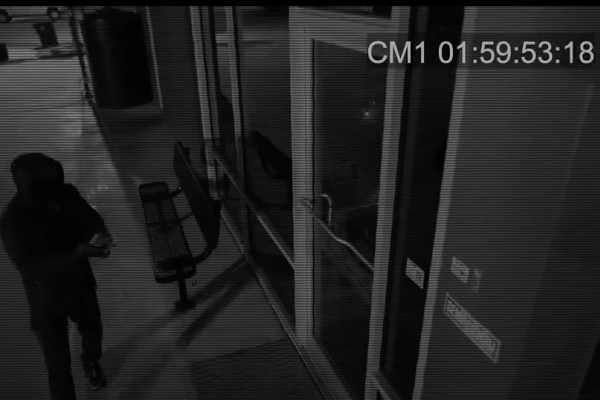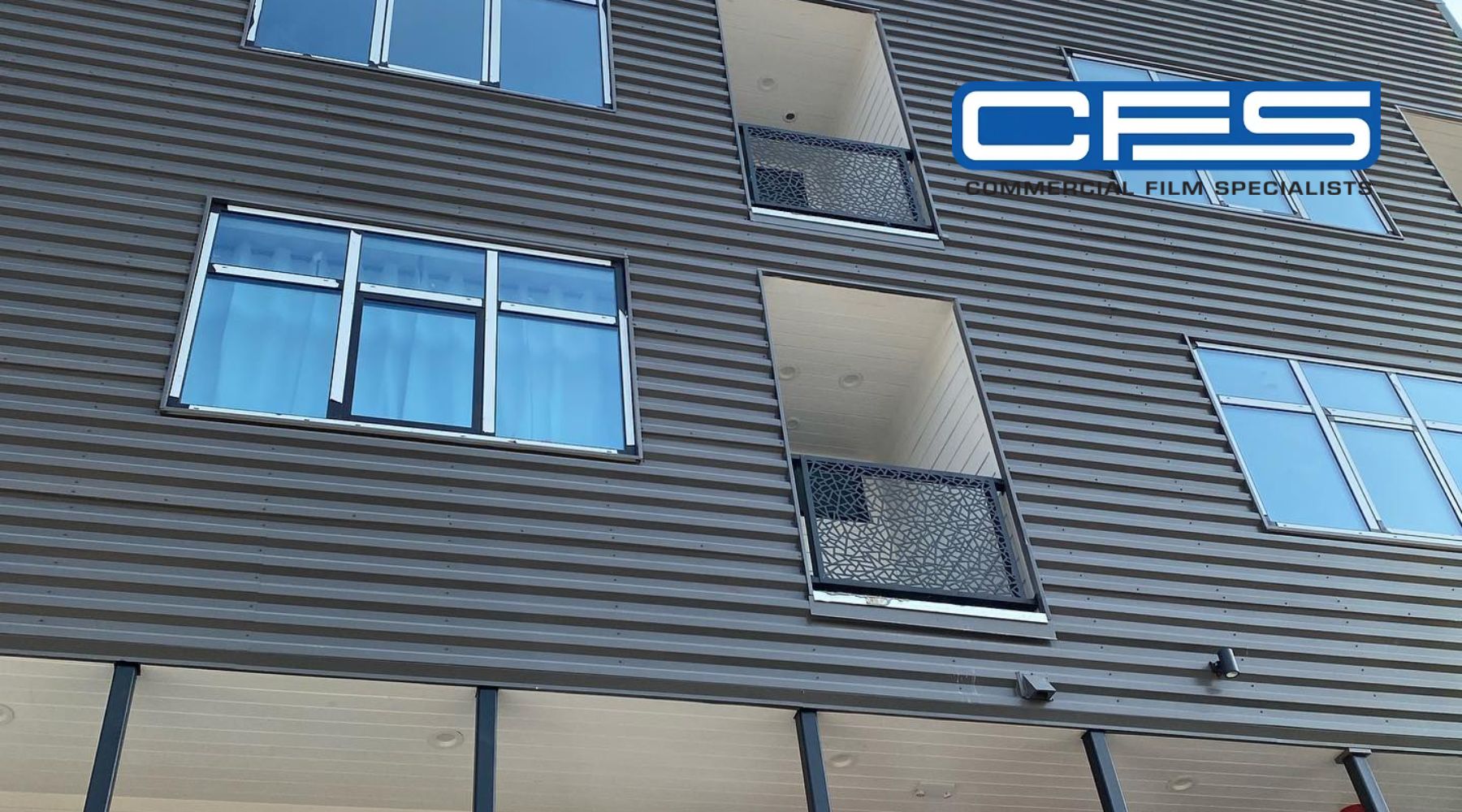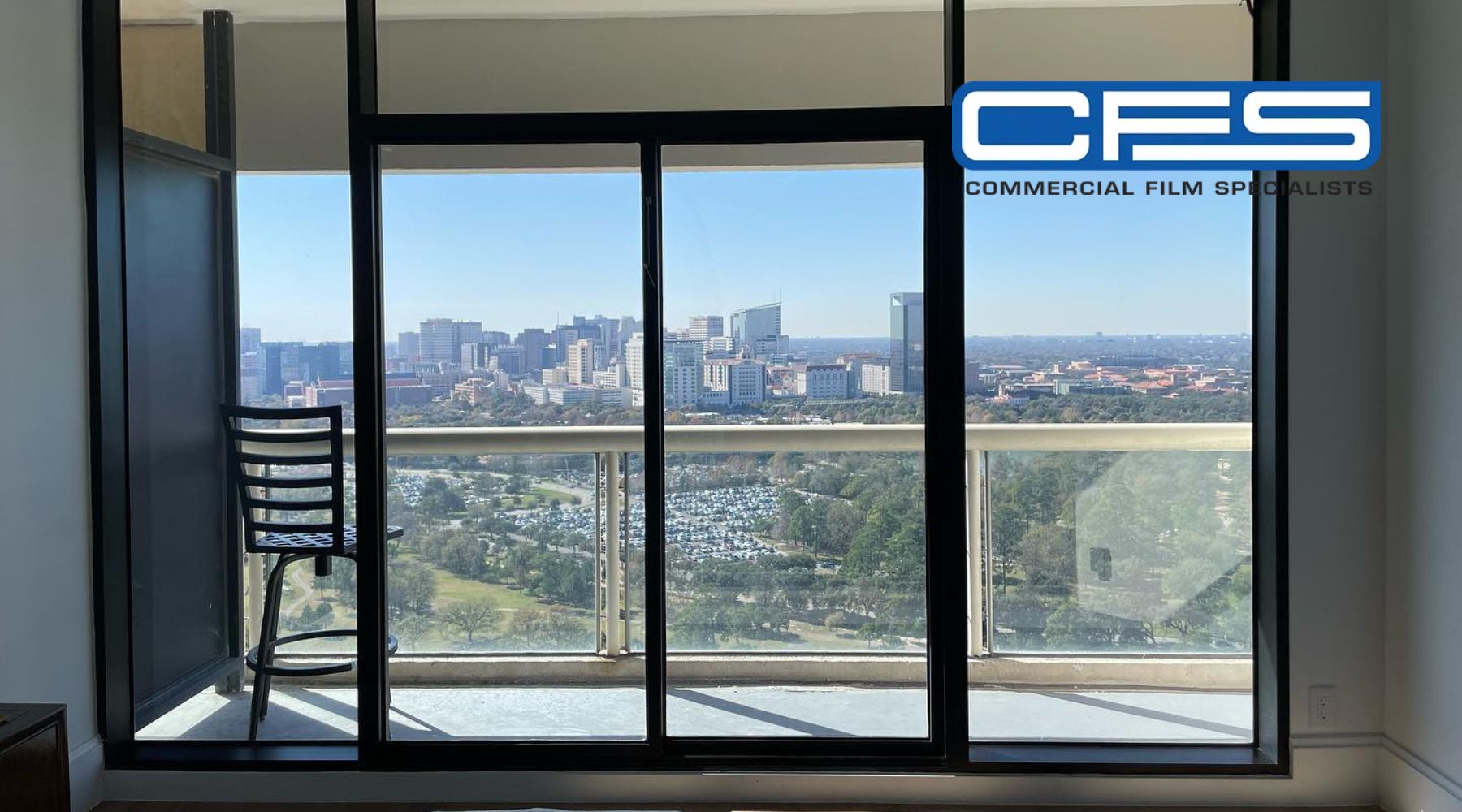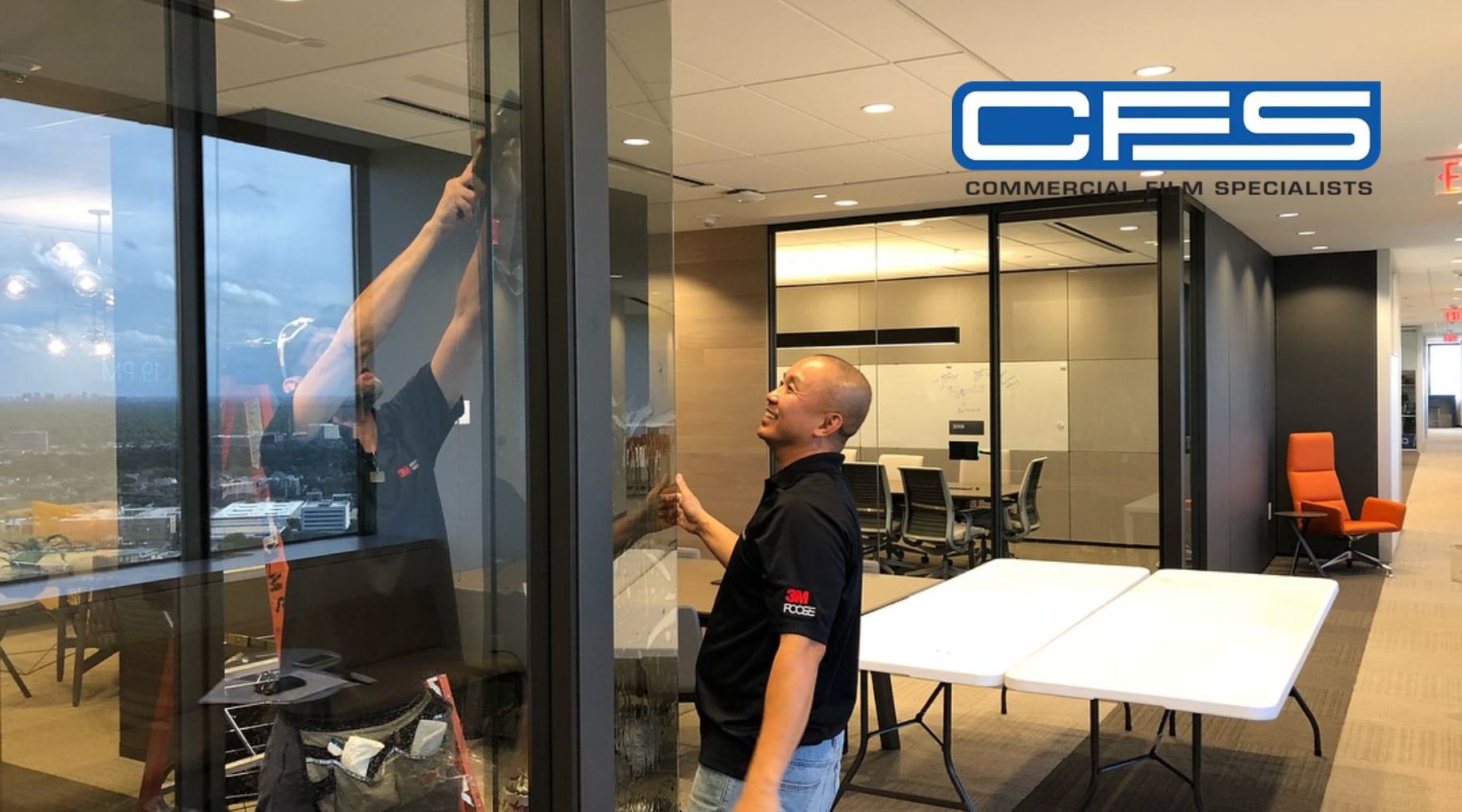Welcome to our Frequently Asked Questions (FAQ) page on Commercial Window Tinting in Houston! This section is designed to answer the most common questions and concerns about our window tinting services. From understanding the benefits to learning about the installation process, you’ll find all the information you need right here. If you have further questions, don’t hesitate to reach out—we’re here to help!
General Benefits and Options
What are the benefits of commercial window tinting for my business?
Commercial window tinting offers a variety of benefits including energy savings by reducing heat gain, protection from harmful UV rays that can damage furniture and equipment, glare reduction to improve employee comfort, enhanced privacy for sensitive areas, aesthetic improvement to boost the professional look of your business, and a positive impact on employee productivity by creating a more comfortable work environment.

What types of window tinting options are available?
There are three primary types of window tints commonly used in commercial buildings:
- Solar Control Window Film: Reduces up to 78% of heat and glare, improving indoor comfort and lowering energy costs.
- Privacy Window Film: Enhances privacy by decreasing visibility from the outside, ideal for areas requiring confidentiality like conference rooms.
- Safety and Security Window Film: Thicker, shatter-resistant film that offers protection against accidents, break-ins, and severe weather.
What are some of the uses of commercial tint film?
Commercial tint films can be used in various ways, such as for solar control to reduce heat and glare, decorative purposes to enhance interior design or display branding, privacy in conference rooms or offices, and security to protect against break-ins or enhance glass safety during natural disasters.
Can the tinting be customized to match my business's branding?
Yes, commercial window tinting can be customized with colors, logos, and patterns that align with your business’s branding. Decorative films are a popular choice for this, as they allow for creative designs that can be both functional and aesthetically pleasing.
Performance and Efficiency
How does window tinting affect energy efficiency?
Window tinting significantly enhances energy efficiency by reducing the amount of heat entering a building. In Houston’s hot climate, this means less strain on your HVAC system and lower energy bills, as the need for air conditioning is reduced.
How much heat does commercial film reduce?
Commercial window films are engineered to reduce glare, heat, and UV exposure while maintaining a comfortable level of natural light in the room. Many modern commercial films are designed to be nearly transparent, offering these benefits without noticeably darkening the workspace. This makes them ideal for environments where maintaining natural light is important, such as offices, retail spaces, and educational facilities.
However, if a darker tint is preferred for privacy or aesthetic reasons, there are options available that can significantly reduce the amount of light entering the room. These darker films can create a more subdued ambiance, which might be suitable for certain settings like conference rooms or areas where screen visibility is critical.
Overall, the choice of film will depend on your specific needs for light control, energy efficiency, and the desired atmosphere of your working environment.
Got Questions About Commercial Window Tinting?
Does commercial film darken a working room?
Commercial window films are engineered to reduce glare, heat, and UV exposure while maintaining a comfortable level of natural light in the room. Many modern commercial films are designed to be nearly transparent, offering these benefits without noticeably darkening the workspace. This makes them ideal for environments where maintaining natural light is important, such as offices, retail spaces, and educational facilities.
However, if a darker tint is preferred for privacy or aesthetic reasons, there are options available that can significantly reduce the amount of light entering the room. These darker films can create a more subdued ambiance, which might be suitable for certain settings like conference rooms or areas where screen visibility is critical.
Overall, the choice of film will depend on your specific needs for light control, energy efficiency, and the desired atmosphere of your working environment.
Got Questions About Commercial Window Tinting?
Can commercial films reduce glare on computer screens?
Yes, commercial window films are highly effective in reducing glare, which can improve screen visibility and reduce eye strain for employees working on computers.
Does commercial window tint reduce noise from outside?
While commercial window films are not primarily designed for soundproofing, they can offer some reduction in noise levels, making the interior environment quieter and more conducive to work.
Installation and Maintenance
What is the installation process like, and how long will it take?
The installation process for commercial window tinting is typically straightforward and quick, with most projects being completed within a few hours to a couple of days, depending on the size of the building. Installations can often be scheduled after business hours to minimize disruption.
Hear from Our Satisfied Customers:

Kevin was very quick to respond and professional… very helpful in solving my problem. The installation was timely and done well. They were also reasonably priced! My clients will definitely appreciate the privacy and heat/sun control!!

Very well communicated throughout the whole project. Started with online inquiry, same day response with proposal of work. Scheduled and delivered with quality service. Highly recommend for future work!
Is window tint film installed on the interior or exterior?
Most window tint films are installed on the interior side of the glass. This installation method offers several advantages:
Protection from the Elements: By placing the film on the interior, it is shielded from harsh weather conditions, such as rain, wind, and extreme temperatures. This helps prevent damage, peeling, or fading, ensuring the film remains effective and visually appealing for a longer period.
Extended Lifespan: Interior installation generally leads to a longer lifespan for the window film. Exposure to external elements, such as UV rays, moisture, and dirt, can degrade the film over time if it were installed on the exterior. Installing it inside significantly reduces this wear and tear.
Easier Maintenance: Window films installed on the interior are easier to clean and maintain. You can clean the windows and the film without worrying about damaging the film or the adhesive.
Enhanced Security: Installing window film on the interior side also provides an additional layer of security. In the event of a break-in or accidental glass breakage, the film helps hold the glass shards together, reducing the risk of injury and making it more difficult for intruders to gain access.
Is the installation process loud or messy?
The installation process is generally quiet and clean, with installers taking care to minimize disruption and maintain a tidy workspace.
How long does window tint take to dry?
Window tint typically takes about 24 to 72 hours to fully dry and cure, depending on weather conditions. It’s recommended to avoid cleaning or disturbing the windows during this period.
Can commercial tint be applied to plexiglass?
Some window films can be applied to plexiglass, but it’s important to check the film’s specifications and consult with the installer to ensure compatibility.
How do I clean tint film?
Proper cleaning of window tint film is essential to maintain its clarity, appearance, and longevity. Here’s a step-by-step guide on how to clean your tinted windows effectively:
- Wait Before Cleaning: If your window tint film has been recently installed, it’s important to wait at least 30 days before cleaning. This allows the adhesive to fully cure and ensures the film is securely bonded to the glass.
- Use a Soft Cloth or Sponge: When cleaning, always use a soft, lint-free cloth, microfiber towel, or a soft sponge. Avoid rough or abrasive materials like paper towels or scrub brushes, as they can scratch the film’s surface.
- Mild, Non-Abrasive Cleaning Solution: Choose a gentle, non-abrasive cleaning solution to clean the film. A mixture of water and a few drops of dish soap is often recommended. Spray the solution onto the cloth or directly onto the film, but avoid excessive soaking.
- Avoid Ammonia-Based Cleaners: Never use ammonia-based cleaning products on window tint film. Ammonia can break down the film’s adhesive and cause discoloration or bubbling over time. Instead, opt for ammonia-free glass cleaners, which are widely available.
- Clean in Circular Motions: Gently wipe the film in circular motions to lift dirt and grime without applying too much pressure. Be careful around the edges of the film to prevent lifting or peeling.
- Dry with a Clean Cloth: After cleaning, use a dry, soft cloth to remove any excess moisture. This prevents water spots and helps maintain a streak-free finish.
- Regular Maintenance: For the best results, clean your tinted windows regularly, especially in high-traffic areas where fingerprints and smudges are common. Regular maintenance will keep the film looking clear and new for years.
What happens if the window tinting gets damaged?
If the tint film gets damaged, it can usually be repaired or replaced. Most providers offer warranties that cover defects or damage under certain conditions.
To learn more about how commercial window tinting can benefit your business in Houston, contact us today.
Legal, Financial, and Warranty Considerations
What are the local regulations or codes regarding window tinting in Houston?
It’s important to ensure that your window tinting complies with local building codes and regulations. Professional installers will typically be familiar with these requirements and can guide you through the process.
To learn more about how commercial window tinting can benefit your business in Houston, contact us today.
How much does commercial window tinting cost?
Got Questions About Commercial Window Tinting?
Contact Us TodayWhat is the warranty and expected lifespan of the window tint?
Most commercial window tints come with a warranty that can range from 5 to 15 years, depending on the film type and manufacturer. The lifespan of the film is typically around 10 to 20 years with proper care.
Are there tax incentives or rebates available for installing window tinting?
There may be local, state, or federal tax incentives or rebates available for businesses that install energy-efficient window tinting. It’s advisable to check with local authorities or your installer.
Can you earn LEED certifications with commercial window tint?
Yes, installing energy-efficient window films can contribute to earning LEED (Leadership in Energy and Environmental Design) certification by improving the building’s energy efficiency and environmental impact.
What certifications or standards do the window films meet?
High-quality commercial window films should meet industry standards such as ASTM (American Society for Testing and Materials) and ISO (International Organization for Standardization) certifications for performance, safety, and quality.
Does window tinting impact insurance premiums?
In some cases, window tinting can lower insurance premiums by increasing building security and reducing the risk of damage. It’s worth discussing with your insurance provider.
What is the expected return on investment (ROI)?
Got Questions About Commercial Window Tinting?
Contact Us TodayAesthetic and Security Impacts
How does window tinting affect visibility from inside and outside?
Window tinting can be designed to allow visibility from the inside while reducing visibility from the outside, enhancing privacy without sacrificing the view. Some films also offer one-way visibility options.

Can I get nighttime privacy with commercial film?
Certain types of window film offer enhanced privacy even at night, although complete nighttime privacy may require additional solutions such as blinds or curtains.
How does window tinting impact building security?
Does the tinting offer protection against natural disasters?
Yes, some commercial window films are designed to provide additional protection against natural disasters like hurricanes by strengthening the glass and preventing shattering.
How does window tinting impact the resale value of the property?
Window tinting can enhance the resale value of a property by improving energy efficiency, aesthetics, and security, making it more attractive to potential buyers.
Does commercial film come in different colors?
Yes, commercial window films are available in a range of colors and shades to match your business’s aesthetic preferences and branding.

Potential Issues and Guarantees
Are there any potential downsides to window tinting that I should be aware of?
- Reduction in Natural Light: Window tinting can reduce the amount of natural light entering a space, which might make rooms feel darker than desired.
- Risk of Bubbling or Peeling: If the film is not properly installed, it may develop bubbles, wrinkles, or start peeling over time, which can affect both appearance and performance.
- Eventual Replacement: Over time, window tint films can degrade, leading to discoloration, fading, or reduced effectiveness, necessitating eventual replacement.
- Impact on Nighttime Visibility: Heavier tints, especially on vehicles, can reduce visibility at night, which may pose safety concerns.
- Legal Restrictions: In some regions, there are legal limits on how dark window tints can be, particularly for vehicles, which may result in fines or required removal if not compliant.
Got Questions About Commercial Window Tinting?
Contact Us TodayWill newly installed film bubble?
Got Questions About Commercial Window Tinting?
Contact Us TodayWill commercial film turn purple?
High-quality films are designed to resist discoloration, including turning purple, which was a common issue with older films. Modern films are UV-stable and maintain their color over time.
Can commercial window tint make the glass crack?
When properly installed, window tinting should not cause glass to crack. However, in rare cases, if the glass is already damaged or defective, the added stress from the film could potentially lead to cracking.
Can the tinting be removed or replaced easily if needed?
Yes, window tinting can be removed or replaced if needed, though the process should be handled by professionals to avoid damaging the glass.
Are there any customer satisfaction guarantees?
Yes, we offer customer satisfaction guarantees to ensure that our commercial window tinting services meet your expectations. If any issues arise, we are committed to taking corrective measures to address them promptly. Our commitment to quality is reflected in our positive Google reviews from satisfied customers who have experienced our professional installations and excellent service.
To learn more or to see what our customers are saying, visit our Google reviews.
To learn more about how commercial window tinting can benefit your business in Houston, contact us today.
References and Examples
Can you provide references or examples of previous work?
Yes, we can provide references and examples of our previous work. You can view these directly on our website and through our Google Business Profile, where we showcase various successful commercial window tinting projects. These examples, along with positive customer reviews, highlight our expertise and commitment to quality, ensuring you’re choosing a reputable installer with a proven track record.
Feel free to explore our online galleries or contact us for specific case studies that match your needs.

Let's Discuss Your Window Film Solution
At CFS we do things differently, we are masters of our craft. We take the extra steps necessary to make sure that each project is done the right way, from initial preparation to the final walk though. It matters not only in the end result but the longevity of the service. CFS founder Mike Norng, a nationally recognized PPF/Window tinting trainer, has taught installers all over the country how to install PPF and window tint with his advanced techniques.


